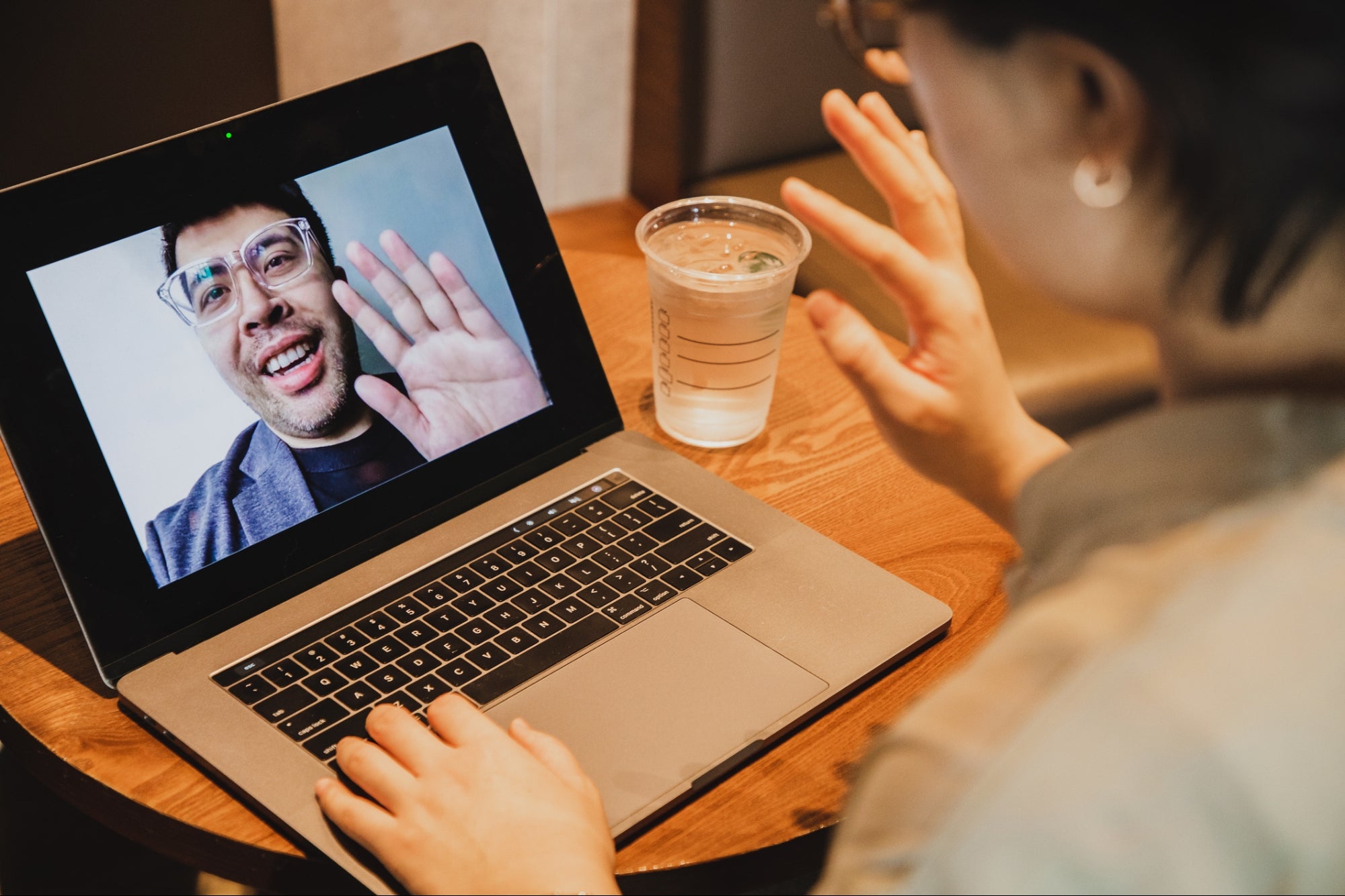
April
1, 2021
7 min read
Opinions expressed by Entrepreneur contributors are their own.
Two years ago, when I was interviewing for a role over the phone, the interviewer was beyond distracted.
“Hold on one sec,” she said on seven occasions. “One sec” turned into minutes upon minutes. When she finally got back on the call, she was still distracted. I’d have to remind her of the question she’d asked and re-start my answer all over again.
Her 12-year-old daughter was repeatedly bouncing a basketball very loudly. Her email was pinging in the background. Her husband came in to ask where their son’s soccer cleats were.
My 45-minute interview was in essence a 15-minute interview. There was no attempt to minimize any of the distractions. There was no offer to reschedule the interview or to reconnect at a later date. It was my fourth-round interview with the company. I never heard back about the role.
During the pandemic, children, pets and partners can be a noisy soundtrack interrupting our Zoom calls. There is no need to apologize for daily interruptions that are now part of our pandemic routine. However, as an interviewer and as an ambassador of your company, here’s the no. 1 thing you must do when interviewing candidates:
Do your best to minimize all distractions within your control.
As interviewers, particularly in a virtual world, we must show intentionally. We must be present, be attentive and give space for candidates to share their stories and experiences. Here are five ways to ensure that you and the candidate have a meaningful and purposeful video conversation:
1. Reset before interviewing
Take the time to reset for a few minutes before starting a Zoom interview. We know that Zoom fatigue is real. Many of us are clicking from one meeting to the next without a bathroom break, a water break or a mental break.
You owe it to the candidate and yourself to reset before showing up for the interview. Block off at least 10 minutes before the interview starts to grab a cup of coffee, listen to a song or get a breath of fresh air. Disconnect from your device and recharge to show up energized and present for your conversation.
Related: Use This Secret Military Trick to Tell if Someone Is Lying
2. Turn off all devices
All devices must be off or on silent mode. That includes emails, texts and Slack messages. Keep your phone and any other device you are not using for the interview away from you to minimize the temptation to check it.
Even if you think you are sneaking in a quick text or a short email, the candidate will notice that you are distracted on the screen. Wait to send that message. Be present for the interview.
It’s not only rude and inconsiderate to be texting and emailing during an interview, but it’s also when we know unconscious bias is more likely to creep in. Unconscious bias can show up when we are multitasking, working in a stressful situation or working against a deadline. There is no room or space for multitasking when interviewing a candidate.
3. Embrace unexpected interruptions
Unexpected interruptions will happen. Don’t fight them; embrace them. At the beginning of interviews, I share that my children are in virtual school. I thank candidates in advance for their patience if they hear noise and place myself on mute when they talk.
Pets roaming around, children having tantrums and partners strolling in without knocking will happen. The last time I conducted an interview, my 5-year-old was wailing because her older brother had stolen her snacks. The wailing continued, and I had to intervene.
I told the candidate I would be right back. I turned my camera off, went and found more snacks, put my son in a timeout and came back to finish the interview. I thanked the candidate for their understanding.
We have to embrace our pandemic surroundings and address the interruption rather than ignoring it. This allows us to move forward and get back to the conversation. If there had been additional interruptions, I would have rescheduled to be fair to the candidate.
Related: 7 Interview Questions for Any Prospective Employee
4. Commit to taking detailed notes
At the start of the interview, I will also let the candidate know I am taking notes. In person, this might have been more obvious. On video, if they see me looking down or in another direction, I want them to know that I am not distracted. Instead, I am actively capturing our conversation.
Ensure you have aligned on the interview questions with your recruiter, the hiring manager and the interview panel well before the interview begins. If you are the hiring manager, it is your responsibility — in partnership with recruiting — to be clear on what questions need to be asked to assess for skills fit and values fit. Trying to create or come up with questions during the actual interview is distracting and creates bias. You should be asking all candidates the same questions to assess their level of expertise.
Take detailed notes that include examples of their experiences, results they have delivered or evidence of their demonstrated level of expertise. Detailed notes are important to ensure you are assessing candidates fairly and minimizing bias. You might like a candidate simply because they went to the same school as you (affinity bias.) You might dislike a candidate because they showed up two minutes late to the interview, and the tardiness drives your perception of their candidacy (confirmation bias.) Without detailed notes to review after the interview, we can fall prey to a number of biases.
5. Submit evaluation in a timely manner
Greenhouse, a leading recruiting software company, recommends that you fill out your evaluation or scorecard immediately after the interview concludes. If this isn’t possible, it should be completed within a few hours of the interview ending, no more than 24 hours later.
This is critical so that your memory of the conversation is fresh in your mind, and that you can read, review and understand the notes you took during the conversation. The more time that passes, the more distractions will take over and the less likely you will be to remember the details of the interview.
You might need to provide rationale for who your top two choices are to advance in the process, or who you would recommend for the job, or who you wouldn’t recommend the company hire based on their lack of expertise for the role. You will need details and examples to provide a thorough evaluation. This also helps provide the foundation for a productive interview debrief with the rest of the interview panelists.
Please remember that you are not just an interviewer. You are an ambassador of your company. How you show up to the interview matters and will play a key factor in whether or not candidates will want to join and grow with your team and company.
Related: 6 Smart Strategies for Interviewing Job Candidates Remotely






